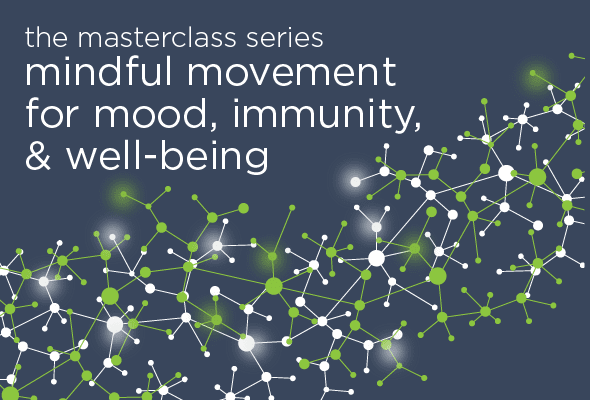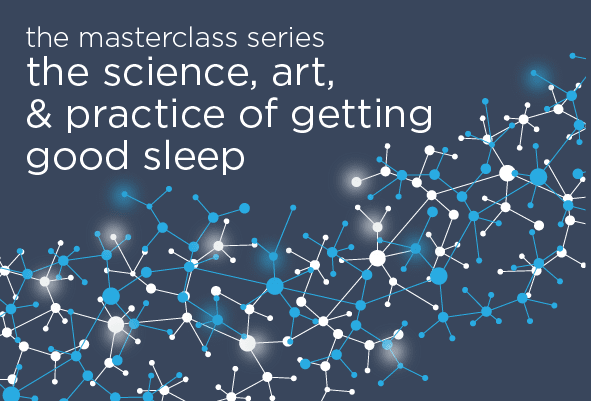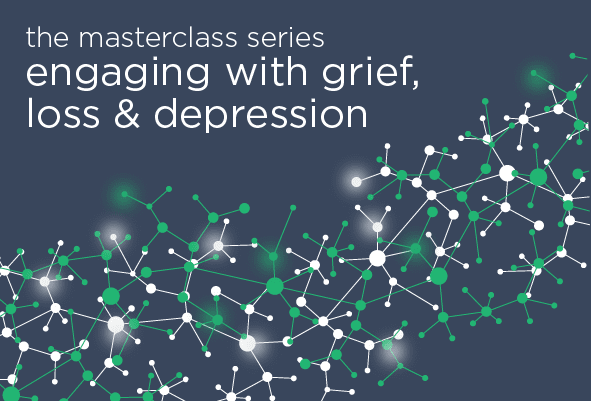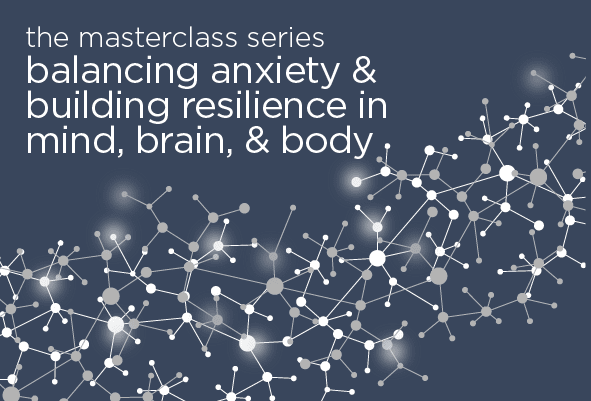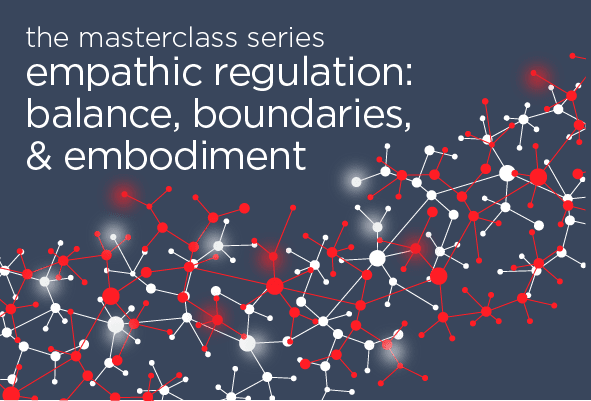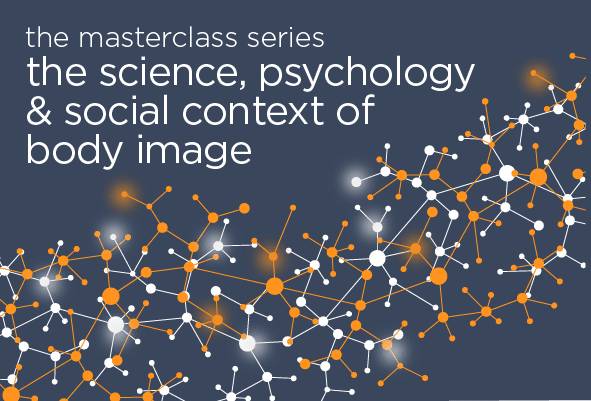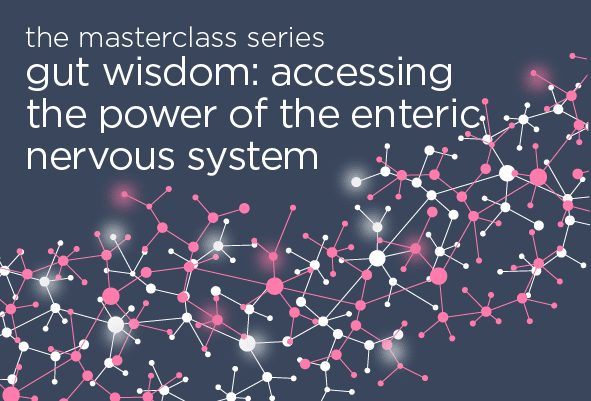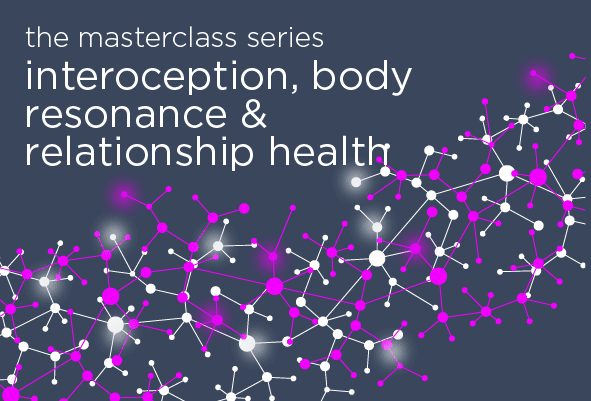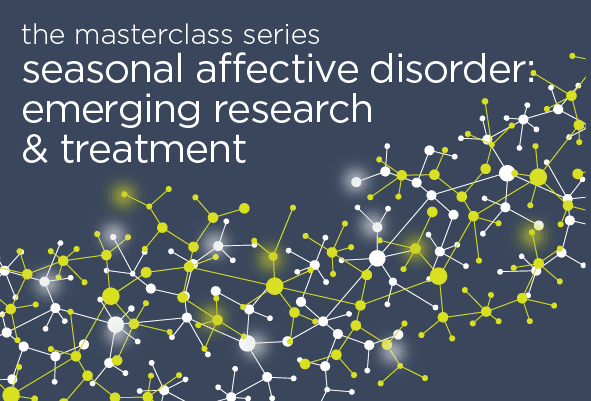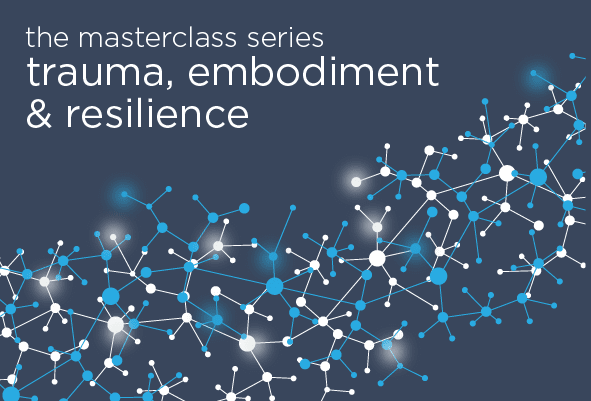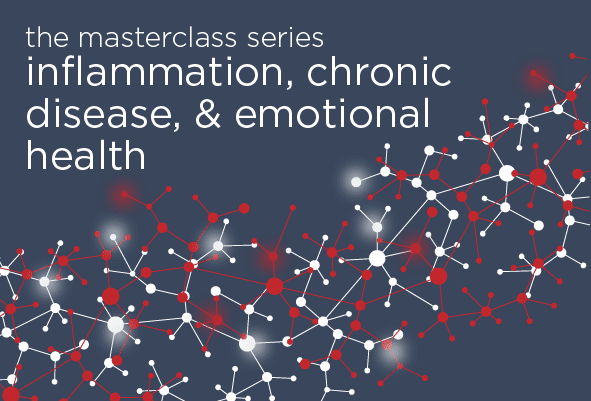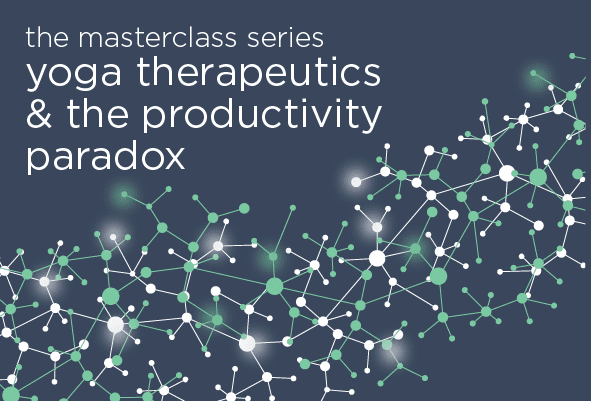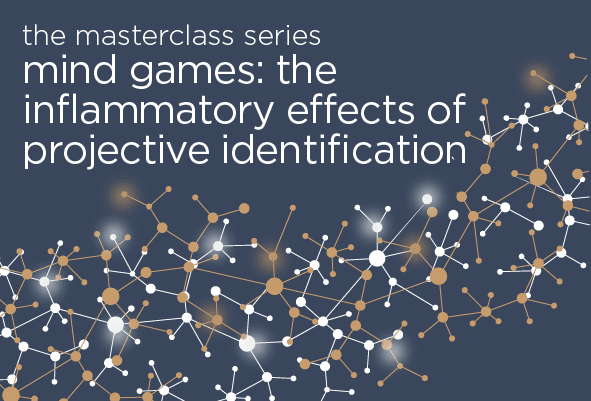Masterclasses
Our Masterclasses are short and sweet but packed with powerful insights. Each one explores a key factor in the science, psychology, and social context of well-being. Classes last up to 2.5 hours and include a 5-question quiz. Upon completion, you have your choice of CE credits for Yoga Alliance, the International Association of Yoga Therapists, or the American Psychological Association. The class video, audio, and PowerPoint PDFs are yours to download and keep forever.
The Menu
Mindful Movement for Mood, Immunity, & Well-Being
Why do yoga and exercise have such beneficial effects on health and well-being? And what can we do to boost these effects? This Masterclass explores mindful movement, a special category in emerging research.
We’ll examine:
- the qualities that make movement mindful
- how mindfulness amplifies the benefits of movement
- the two main types of body awareness and how they intersect
- how mindful movement boosts immunity
- the brain’s proprioceptive “maps” and what they do for us
- novel movement and its role in emotional health + longevity
- the social context of movement and body agency
You’ll learn powerful ways to enhance your current meditation, movement, and exercise practices.
Participants will be able to discuss emerging research in mindful movement as it relates to emotional health, immunity, and longevity.
The Science, Art, & Practice of Getting Good Sleep
Until recently, the function of sleep was relatively unknown. This class examines emerging findings from the science of sleep. We review the stages of sleep, when they occur, and why they’re important to physical and emotional health. We discuss the glymphatic system- the brain’s waste removal system- and its relation to Alzheimer’s disease and dementia. We explore some of the causes (and impact) of modern insomnia. And we review multiple ways to increase the quantity and quality of sleep we get each night.
This Masterclass will cover:
- the science of sleep
- the effects of sleep deprivation on our functionality
- cutting-edge research that links sleep, inflammation, and emotional health
- why sleep deprivation is a social illness
- the power of cognitive, behavioral, body-based, and contemplative practices to improve the type, quality, and timing of our sleep
Participants will be able to describe the stages and functions of sleep, their impact on well-being, and methods for improving both sleep and restoration.
Engaging with Grief, Loss, & Depression
Over the last decade, science has shed new light on the factors that lead to well-being, but some of the most important insights haven’t yet reached mainstream understanding. Until recently, depression has been viewed as a genetic and biochemical problem to be managed solely through talk therapy and medication. And yet, revolutionary new research supports alternative root causes and through them, novel means for treatment.
This Masterclass will address ways to engage with and lift grief, loss, and depression. We’ll cover:
- the neuroscience of emotion
- cutting-edge research that links inflammation with depression
- why depression is not just a personal but a social illness
- the power of yoga, mindfulness, and embodiment to relieve depression
- how practices like self-compassion, compassion, gratitude, and generosity can help
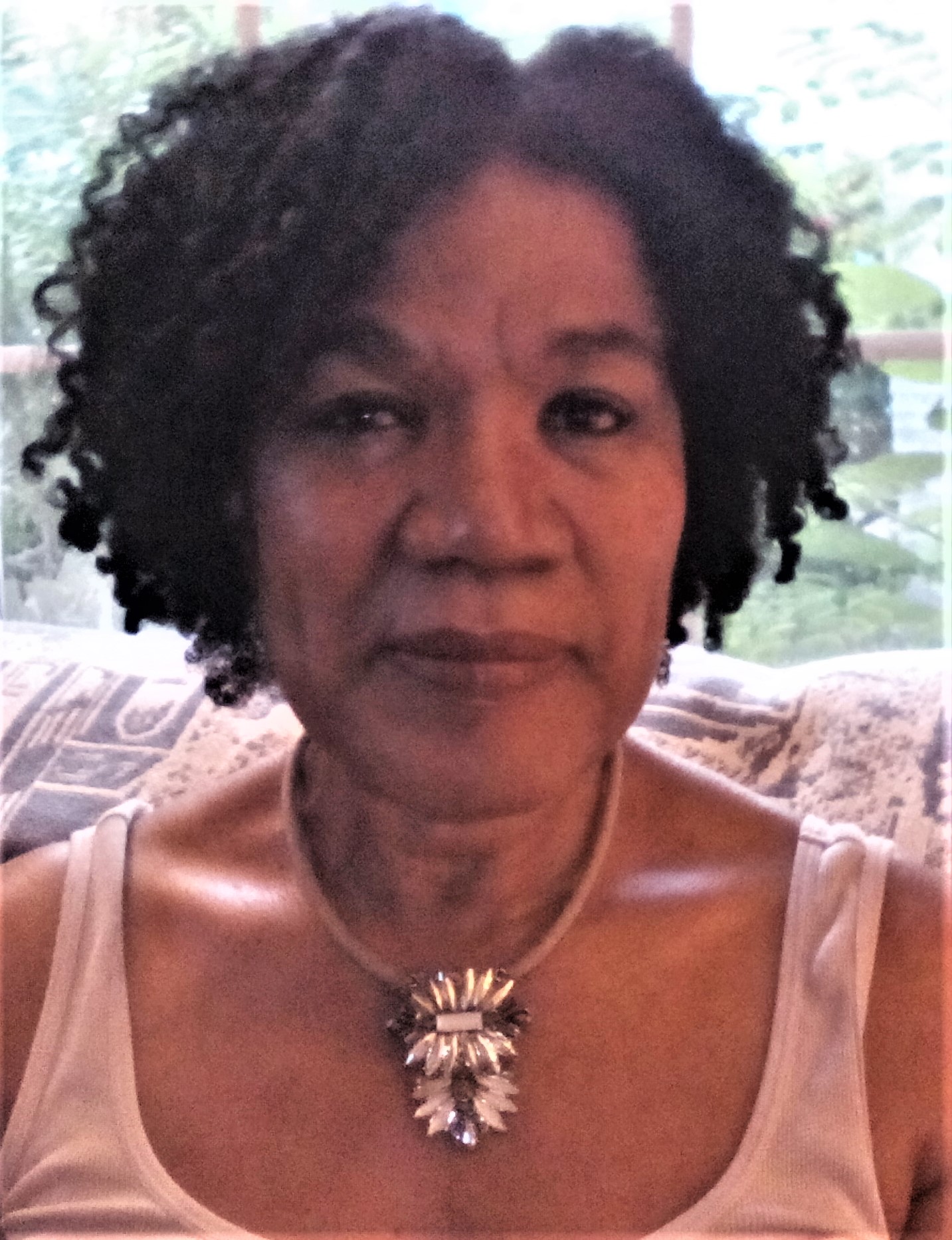
Balancing Anxiety and Building Resilience in Mind, Brain, & Body
Most of experience anxiety, from practical concerns over work, childcare, housing, finances, and health to existential worries about meaning, purpose, and our future as a species. Anxiety is part of this moment, and part of the modern human condition.
Emerging research points to the importance not of calm but resilience, the ability to feel our challenges and return to balance. And one of the best ways to train resilience is to do so through the body. Much like today’s world, the body constantly changes in unpredictable ways. Interoception, our attention to momentary bodily sensation, plays a key role in training our brain to navigate large social change.
In this Masterclass, we’ll explore:
- polyvagal theory and the three nodes of nervous system response
- the mind’s default mode in anxiety
- the importance of interoception in relating differently to anxiety, panic, and fear
- the most effective interventions for optimal vagal tone
- how yoga, mindfulness, and embodiment can help
Drawing from cutting-edge research in neuroscience and psychology, and tools from the yoga and mindfulness traditions, we’ll explore how to be more “at home” in the changing wilderness of the body and the changing world around us.
Participants will understand the neuroscience of anxiety and how the application of interoception augments nervous system functioning and improves vagal tone.
Empathic Regulation: Balance, Boundaries, & Embodiment
Do you often wonder which emotions are yours, and which belong to someone else? When people you care about are hurting, do you feel their pain so deeply that it’s hard to separate—even after they’re out of crisis mode? In relationships, do you donate so much of your own natural resources that you suffer from a chronic energy shortage? And with the state of our social and political worlds, do you feel the conflict in your own body? If the answer is yes, it’s highly likely that you’re an empath.
While being an empath is an asset, it can cause imbalance in significant ways. In this Masterclass, we’ll focus on boundaries, balance, and embodiment. We’ll explore:
- which body systems bear the brunt of empathic overload
- what emotional contagion is, how it works, & how to manage it
- how to move from empathic distress to compassionate action
- how to better navigate the paths of personal and social justice
- powerful tools to nourish the empath mid, brain, and body
- resolve “empathic distress”
- powerful tools to nourish the empath mind, brain, body, & spirit
Join us as we explore boundaries, balance, and embodiment for empaths, as well as those who love or care for them.
Participants will understand the basic principles of the neuroscience of compassion and methods for developing empathic regulation.
The Science, Psychology, & Social Context of Body Image
Body image isn’t a mental construct, a picture that’s stuck in our heads and in need of an upgrade. It is a social construct. Multiple outside forces affect body image, and some of them benefit when it suffers.
This Masterclass examines the social context of body image and the cultural forces that shape our self-to-body relationship. It addresses:
- what body image is and how it develops
- the most important scientific findings on body image
- the surprising science of embodiment- and how it can rejuvenate the way we view and relate to our bodies
- innovative ways to nourish our self-to-body relationship
- methods for amplifying body agency and body ownership
We’ll discuss the implications of this research for yoga, fitness, psychotherapy, contemplative practice, and healthy eating.
Participants will understand four key elements of the emerging science of embodiment as they relate to body image, as well as describe the social context of body image.

Gut Wisdom: Accessing the Power of the Enteric Nervous System
The core body isn’t just a physical structure: our gut has a mind of its own. It’s highly intelligent, and can act independently of the brain and nervous systems. It regulates immunity, inflammation, and emotional health. It also contains a microbiome of incredible sophistication.
In this Masterclass, you’ll learn:
- what the enteric nervous system is and why it’s so important for our health
- what gut microbes do and how they communicate
- how gut inflammation impacts physical and emotional health
- practical tools for yoga, fitness, contemplative practice, and eating
And we’ll examine this information in light of our self-to-body relationship and the social context of gut health.
Participants will understand the psychology, immunology, and social context of the enteric nervous system, and be able to discuss how nourishing this system improves well-being.
Interoception, Body Resonance, & Relationship Health
What is body intelligence- and how does it support and build social intelligence? Your body has a mind- a power, presence, and awareness- of its own. This power, presence, and awareness play a key role in diffusing conflict and building connection with others.
This Masterclass investigates:
- what interoception is and how it impacts emotional and social regulation
- the brain’s “self-fulfilling body prophecy” and how to reprogram it
- how to discern between different levels of emotional reactivity
- why body resonance impacts conflict resolution
- how to set embodied boundaries
The class finishes with three live consults that allow you to witness the principles in action.
Participants will be able to discuss interoception and body resonance and how they reduce emotional reactivity and improve relationship health.
Seasonal Affective Disorder: Emerging Research & Treatment
Novel and integrative approaches to depression, inflammation, and light-dark cycles reveal an interactive effect with startling implications for health, well-being, and longevity. We have biological clocks in our brains and bodies. Knowing how these clocks function and how they impact our health points us to powerful methods for healing.
This class examines:
- chronobiology, the science of body rhythms and their relationship to time
- why our brain and body rhythms matter- and what we can do to restore them
- new avenues in treatment, including chrono-therapy, chrono-pharmacology, and chrono-nutrition
This Masterclass focuses on what you need to know, how to prepare (and when preparation is effective), and keystone habits that will help you in the difficult months of winter.
Participants will be able to discuss chronobiology and its importance in health, and understand several tools to alleviate the symptoms of Seasonal Affective Disorder.

Trauma, Embodiment, & Resilience
Recent revelations have brought sexual trauma and PTSD to the surface in the yoga, mindfulness, and larger world. This Masterclass will address trauma as a systems issue. We’ll cover the social context of sexual trauma in relation to race, gender, ability, and vulnerable bodies.
We’ll address:
- important concepts related to power dynamics, proprioception, and language.the emerging new science of posttraumatic stress
- the five components of embodiment (and how trauma affects each)
- the body archive of trauma
- reflections on the use of touch and therapeutic language in yoga classes and one-on-one sessions
Participants will understand trauma’s social context, its impact on the five key elements of body awareness, and embodiment as a healing methodology.
Inflammation, Chronic Disease, & Emotional Health
Neuroscience has increasingly demonstrated the inextricable link between inflammation, physical health, and emotional well-being. This Masterclass explores what inflammation is and where it occurs in the mind, brain, and body. It examines:
Participants will understand what inflammation is, how it impacts emotional health, and be able to discuss several ways to alleviate it. |
Yoga Therapeutics & the Productivity Paradox
This Masterclass focuses on the pressure to produce, to do more, faster, better. It examines the social context of this pressure and several ways that the drive to produce impacts knowledge and healing practices like yoga, psychotherapy, and the wellness space. The class explores implications for our work as teachers, healers, parents, and people.
We examine:
- where productivity demands originate and how they impact the mind, brain, and body.
- what dynamic rest and quiet wakefulness are and how to build them into individual and group sessions
- why connective tissue self-massage is so important
We’ll experience the practice of embodied self-compassion and restorative yoga, and learn why they’re so effective at balancing the drive to produce and fostering sustainable creativity.
Participants will be able to discuss the social context of productivity, and offer several methods on the continuum of dynamic rest.
Mind Games: The Inflammatory Effects of Projective Identification
Projective Identification is a psychological defense mechanism in which sensations and emotions so intense as to unravel someone- think rage, shame, despair, envy, or self-hatred- are forced into someone else (a therapist, teacher, healer, or loved one) without warning or awareness. Unprocessed, it can leave us metabolizing other people’s most difficult feelings and sensations- often indefinitely.
In this class, we explore:
- what projective identification is, how it works, who’s most vulnerable to it
- why it’s so important for healthcare professionals to identify it and counter it
We explore how yoga, mindfulness, and body-based practices can help us combat this defense, remaining free to metabolize only what’s ours and discard what isn’t.
Participants will understand what projective identification is, why it happens, how to detect it, and how to manage its effects in themselves as a means of self-care and therapeutic efficacy.
